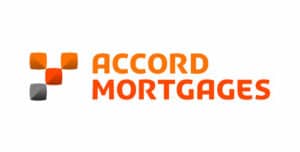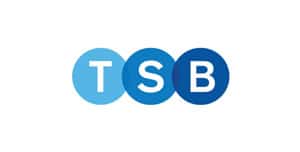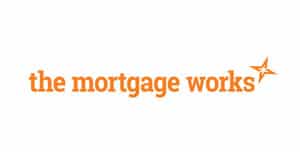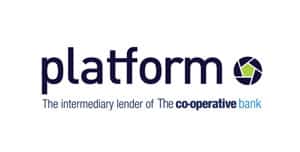In a bold move to tackle the housing affordability crisis facing many Britons, the UK government, led by Prime Minister Rishi Sunak and Chancellor Jeremy Hunt, is reportedly mulling over a 99% mortgage scheme aimed primarily at first-time buyers. This initiative could be announced in the 2024 spring budget and would lower the formidable barrier of the initial deposit, potentially transforming the dream of homeownership into reality for countless individuals.
Background of the 99% Mortgage Scheme
Under the proposed scheme, first-time buyers would be required to have just a 1% deposit to secure their own home, a significant reduction from the current norm. This initiative builds on the spirit of past efforts, like the Help to Buy scheme, aiming to make the property ladder more accessible in an era of soaring property prices and stringent lending criteria.
- Deposit Requirement: Only a 1% deposit is needed from first-time buyers, significantly lower than current norms.
- Aim: To make homeownership more accessible, especially for those struggling with the high costs of saving for a deposit.
- Comparison with Past Efforts: Builds upon the concept of the Help to Buy scheme, but with even lower upfront costs for property buyers. Seeks to further ease the entry onto the property ladder in response to escalating real estate prices and tighter lending standards.
- Target Audience: Primarily aimed at first-time buyers, particularly younger individuals or those from generation rent facing affordability challenges.
Potential Benefits and Concerns of 99% Mortgage Guarantee Scheme
The 99 percent mortgage scheme stands as a beacon of hope for many, offering a significant reduction in one of homeownership’s most formidable barriers: the deposit requirement. For ‘generation rent,’ the prospect of saving enough for a traditional down payment while shouldering high rental costs presents a substantial obstacle. This innovative scheme promises not just to usher in a new era of homeownership but also to invigorate the housing market with fresh enthusiasm from potential buyers. Yet, as with any bold initiative, it brings with it a set of concerns including poetential mortgage rates that mirror the complexities of the housing market’s current state.
Benefits of the 99% Mortgage Scheme:
- Lower Barrier to Entry: Reduces the deposit requirement to just 1%, making homeownership more attainable for a broader segment of the population.
- Increased Homeownership: Aims to convert renters into homeowners, addressing the affordability crisis and supporting those previously unable to save for a larger deposit.
- Market Vitality: Introduces fresh energy into the housing market by enabling more first-time buyers to participate, potentially stimulating related sectors like construction and real estate services.
- Economic Stimulus: By facilitating increased homeownership, the scheme could act as a catalyst for economic growth, leveraging the housing market as a key economic driver.
- Social Mobility: Enhances social mobility by providing more individuals the opportunity to build equity and wealth through property ownership.
- Generational Impact: Offers a tangible solution for “generation rent,” who face greater challenges in achieving homeownership compared to previous generations.
Criticisms and Concerns of the 99% Mortgage Scheme:
- Potential for Market Overheating: Introducing a high volume of buyers with minimal initial investment could exacerbate the current property market’s temperature, risking stability if house prices fall.
- Risk of Negative Equity: Buyers could find themselves with mortgages exceeding the value of their homes if property prices decline, a situation reminiscent of the 2008 financial crisis.
- Increased Debt Burden: The scheme encourages taking on significant debt with little upfront equity, potentially causing borrowers overstretching.
- Supply and Demand Imbalance: By focusing primarily on increasing demand without addressing the supply of affordable housing, there’s a risk of further inflating property prices.
- Affordability Crisis Worsening: Without comprehensive measures to increase housing stock, the scheme might deepen the affordability issues it seeks to mitigate.
- Short-term Solution to Long-term Problem: Some critics view the scheme as a temporary fix that doesn’t address underlying issues in the housing market, such as the need for sustainable development and equitable growth.
The View from the Mortgage Market
The mortgage market’s reaction to the proposed 99% mortgage scheme is a mix of cautious optimism and concern. Industry professionals recognise the potential for increased homeownership but also underscore the need for careful implementation to avoid unintended consequences.
Below we have comments from the founder of YesCanDo Money, a highly experienced UK fee-free mortgage broker:
Throughout my journey from an Independent Financial Adviser to founding YesCanDo Money, I’ve always placed a premium on understanding the unique financial landscapes our clients navigate. The proposed 99% mortgage scheme could be an intriguing development in our field. It promises to significantly lower the entry barrier to homeownership, a mission closely aligned with our ethos at YesCanDo Money. However, it’s vital that this initiative is implemented with a deep understanding of both its potential benefits and pitfalls. Our commitment at YesCanDo has always been to guide our clients through their financial journey with care, honesty, and expertise. As we consider the implications of this scheme, our focus remains on ensuring sustainable, informed financial decisions for all our clients. – Steve Roberts (Founder of YesCanDo Money)
The view from the mortgage market underscores the complexity of introducing such a scheme. It highlights the importance of a collaborative approach, involving government, lenders, and industry experts, to navigate the potential pitfalls and truly make homeownership more accessible.
99% Mortgage Real-Life Example
Based on the average UK house price in January 2024 of £284,950 and applying the 99% mortgage scheme, the buyer’s initial deposit would be approximately £2,849.50. Utilising an illustrative mortgage interest rate of 5.5%—with the caveat that official rates for the scheme are yet to be determined—the estimated monthly repayment for a 25-year mortgage term would be approximately £1,732.34.
Explore the costs of the average mortgage in the UK >
This figure offers a practical glimpse into the potential monthly financial commitment for prospective homeowners considering the 99% mortgage scheme, emphasising the importance of waiting for the scheme’s finalised lending rates to fully understand the implications of entering into such a mortgage.
Comparisons to Previous Initiatives
Comparatively, the 99% mortgage scheme ventures further than the Help to Buy Scheme, which required a 5% deposit but was similarly aimed at stimulating homeownership among first-time buyers. While previous schemes have had mixed success, the proposed plan’s aggressive approach underscores the government’s urgency in addressing housing market challenges.
Skipton Building Society’s 99% Mortgage Offer
100% mortgages and 99% mortgages already exist within the mortgage market. Skipton Building Society is pioneering the 99% mortgage initiative by offering a five-year fixed-rate mortgage that requires only a 1% deposit. Although this is not part of any Government scheme, Skipton offers this mortgage deal with an initial interest rate of 5.35%, which later adjusts to 6.79%, monthly repayments are set at £2,696 for the first five years. This offer provides a practical option for prospective homeowners, highlighting the evolving landscape of mortgage financing.
The View from the Property Market
Reactions from within the property sector vary, with some applauding the government’s innovative efforts to empower buyers. Yet, others caution against a hasty embrace to attract young voters leading up to a general election of such schemes without a comprehensive strategy addressing the housing supply. Experts like David Hannah of Cornerstone Tax critique the scheme as a superficial fix, urging a holistic approach that includes boosting housing stock and revising outdated policies. With added stamp duty costs, a 99% mortgage would look like a 95% mortgage for previous home buyers.
Helping First-Time Buyers Get on the Property Ladder
The proposed 99% mortgage scheme represents a significant step towards addressing the challenges faced by first-time buyers in getting on the housing ladder. By dramatically reducing the deposit barrier, the initiative aims to open the doors of homeownership to a broader segment of the population, particularly those who have been sidelined by the escalating costs of entering the housing market.
- Encouragement for New Entrants: This scheme could serve as a pivotal encouragement for individuals and families who have found the dream of owning a home increasingly out of reach. With the requirement of only a 1% deposit, the path to homeownership becomes more accessible, offering a glimmer of hope to those trapped in the rental cycle.
- Potential for Market Expansion: By enabling a new wave of buyers to enter the market, the 99% mortgage scheme has the potential to inject new energy into the housing sector. This influx of homeowners could stimulate demand across various segments of the market, from new builds to existing properties, fostering a more dynamic and diverse property landscape.
- Addressing Affordability Challenges: The initiative is particularly poignant in the context of rising house prices and the growing gap between wages and the cost of buying a home. By reducing the upfront financial burden on buyers, the scheme directly addresses one of the most significant barriers to homeownership, making it a potentially transformative policy for many.
- Educational and Supportive Measures: For the scheme to be effective, it will also be crucial to pair it with educational resources and advisory services to help new buyers understand the responsibilities and commitments of homeownership. This holistic approach will ensure that first-time buyers are not only able to access the property ladder but are also prepared for the long-term financial management it entails.
In conclusion, the 99% mortgage scheme stands as a beacon of opportunity for first-time buyers. While the views from the property market vary, with calls for a balanced approach that includes addressing housing supply, the initiative undeniably opens up new possibilities for achieving homeownership. As the scheme unfolds, its success will depend on careful implementation, continued evaluation, and adaptations to ensure it meets the needs of buyers and contributes to the health of the housing market.
Long-term Implications for the Housing Market
The long-term impact of the 99% mortgage scheme on the housing market is a subject of intense debate. Proponents envision a revitalised market with increased homeownership rates, while skeptics warn of potential price inflation and the dangers of a new housing bubble. The key to success lies in the delicate balance between stimulating demand and expanding supply, ensuring that the scheme fuels sustainable growth rather than speculative excess.
Conclusion
The UK’s proposed 99% mortgage scheme represents a bold attempt by its government to increase homeownership among first-time buyers. While its potential is undeniable, success will depend on careful implementation as well as complementary policies designed to address wider housing market issues. Industry experts and potential homeowners will play an essential role in shaping an environment where homeownership becomes accessible for more first time buyers.
As the government attempts to navigate these waters, they must exercise great care in implementing solutions without creating further problems later on. With careful planning and commitment to sustainable development, 99% mortgage programs could mark an important step toward building more inclusive and stable housing markets.















